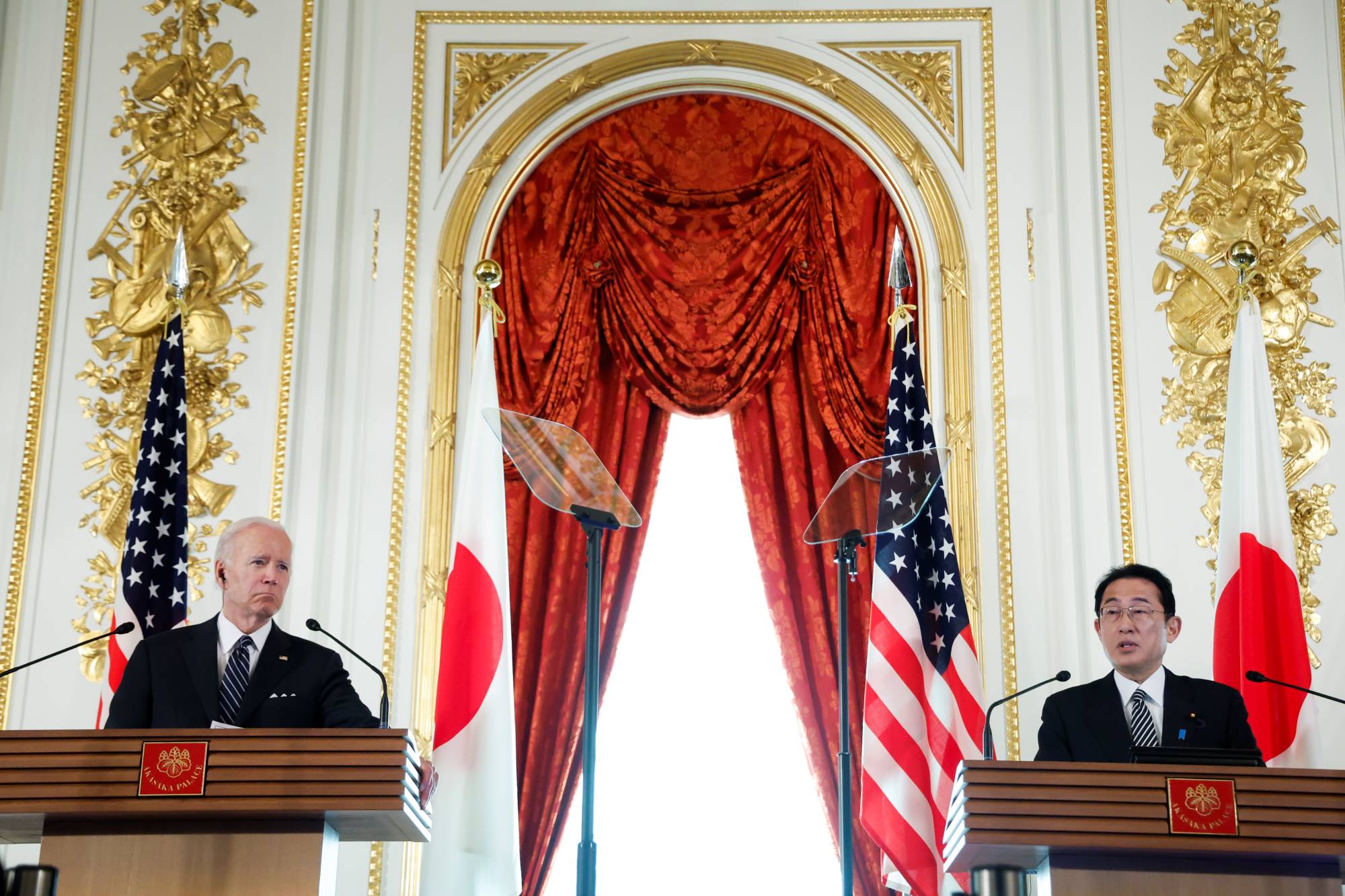Taking place in the first city to suffer an atomic bombing, this weekend’s Group of Seven summit has a certain poetry.
The choice of Hiroshima as the venue is more than Japan’s leader, Fumio Kishida, picking his home constituency. The country holds the G7 presidency just as the eight-decade taboo on the use of nuclear weapons feels closer than ever to being broken due to Russia’s invasion of Ukraine. The prime minister has a lifelong commitment to denuclearization, stating in his 2021 book that "as a Japanese politician from Hiroshima, it is my duty to continue to speak about the inhumanity of nuclear weapons.” He’ll spend much of this weekend promoting their complete elimination.
But the timing and location have an irony, too. It’s also Kishida who is overseeing the greatest expansion of Japanese military power since the end of World War II, a push that’s moving the country even closer to the U.S. — which is, after all, the greatest nuclear power in the world. It’s the only nation to have used such weapons in conflict, and its nuclear umbrella is more vital than ever as Japan’s security shield.
















With your current subscription plan you can comment on stories. However, before writing your first comment, please create a display name in the Profile section of your subscriber account page.